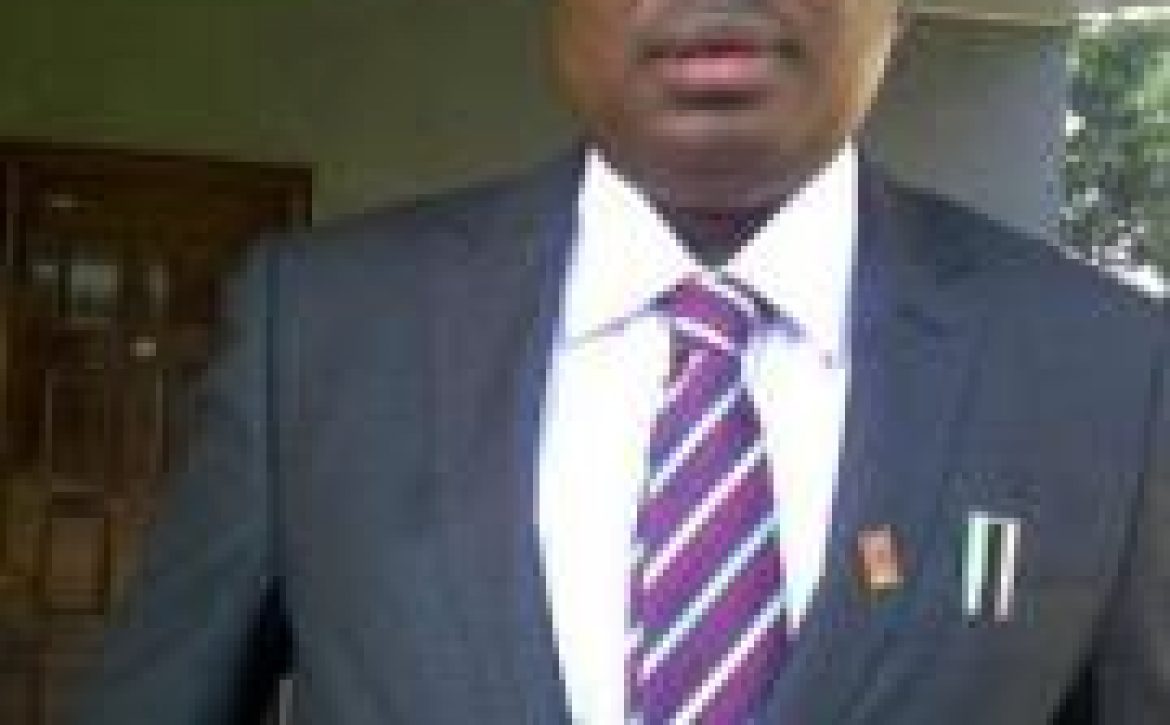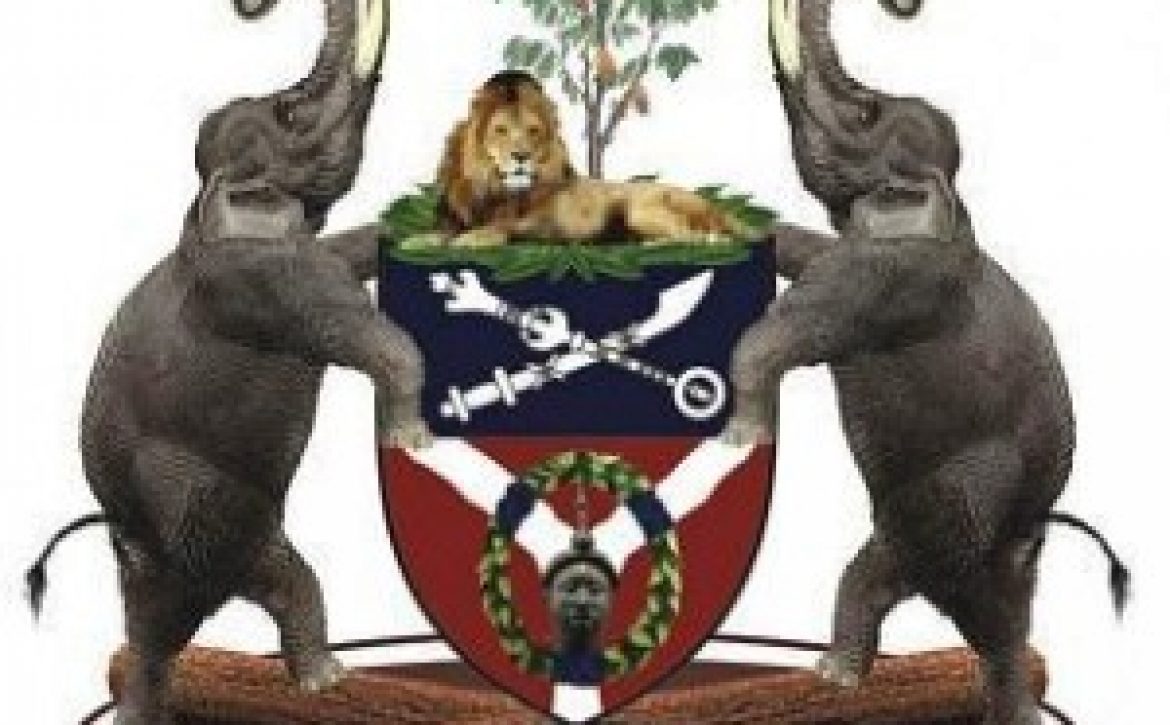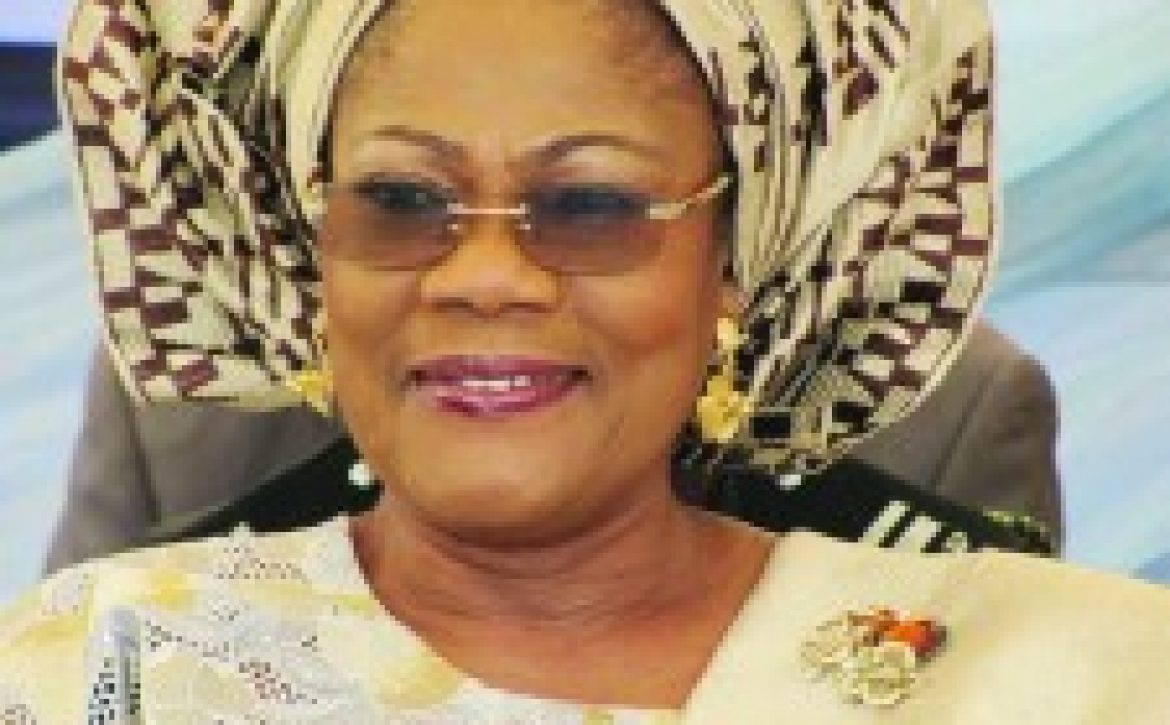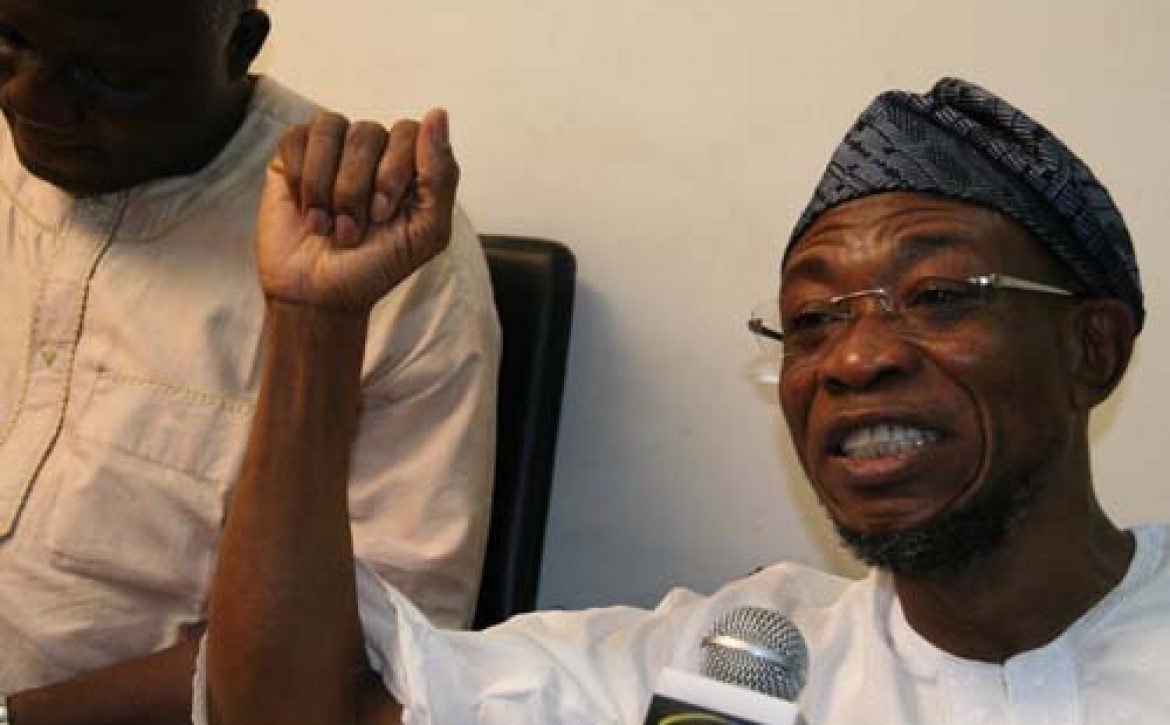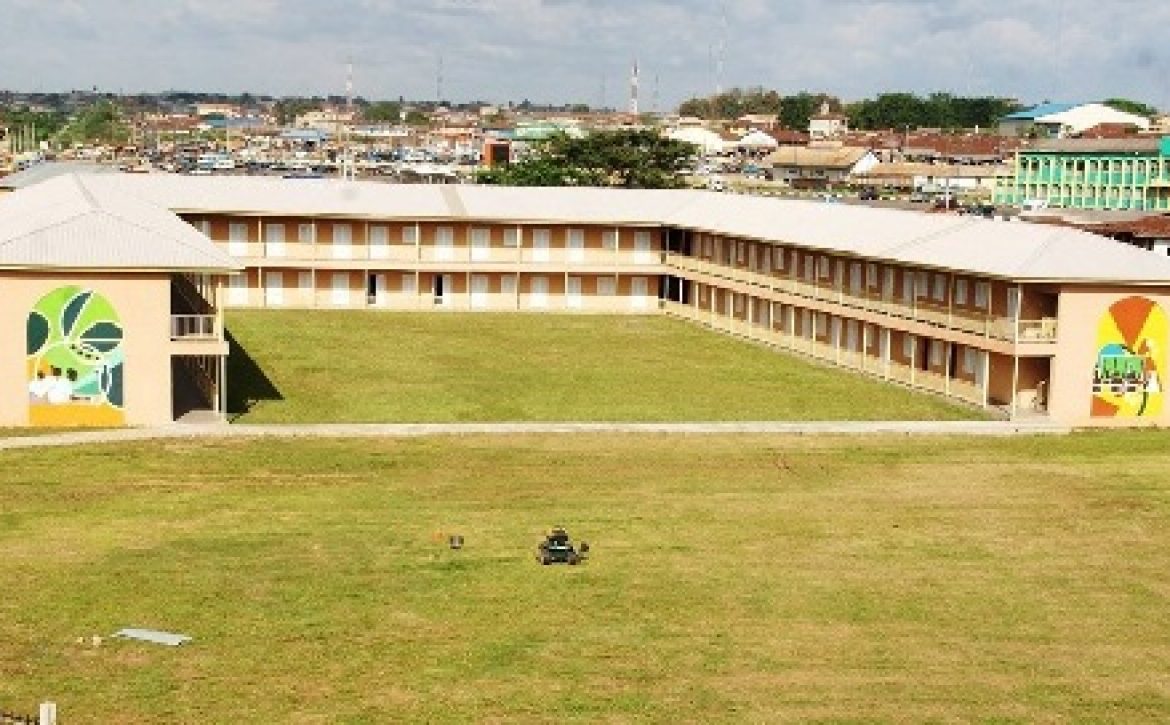
Motorists have been advised to cultivate the habit of complying with traffic rules without waiting for law enforcement agents to apprehend them.
Chairman, State of Osun Technical Committee on Federal Road Safety Commission set up by Governor Rauf Aregbesola, Prof. Joseph Fawole gave the advice during a road show embarked upon by the Committee.
While disclosing that the dominant offences for which most of the offenders were apprehended and booked were, failure to use the seat belt and overloading. Professor Fawole lamented that some motorists were caught with right hand drive vehicles which had been banned since 1973.
He then promised that the committee will not relent in its public enlightenment endeavours, until a sound road culture is cultivated as in development societies.
OSUN NEWS
Category: General

The commissioner for information and strategy, Mr. Sunday Akere has admonished people to live safely and be security conscious of their environment during this festive period.
He said this today in Owode town while on a market rally organized by the ministry of information and strategy, State of Osun. He advised the people to always beware of the happening going on around them and to report any act of unlawfulness to the appropriate authority.
Furthermore, Mr. Akere also encouraged parents to pay more attention to their children. That they should always find the time to know how their children are coping with their studies in their various schools. He said the government has provided the ‘OPON IMO’ tablet to enhance and improve the learning ability of student in public schools; hence parent should try and monitor how their children use these tablets as well as its maintenance.
He also stated that, the people should not see the educational reforms in the state as a means to pride a particular religion over the other, but as a means of strengthening the educational sector in the state of Osun.
OSUN NEWS
 The State of Osun under the focus minded leadership of Ogbeni Rauf Aregbesola has been making efforts to reduce the State’s over reliance on Federal allocation in sustaining the state needs by strategizing to boost Internally Generated Revenue.
The State of Osun under the focus minded leadership of Ogbeni Rauf Aregbesola has been making efforts to reduce the State’s over reliance on Federal allocation in sustaining the state needs by strategizing to boost Internally Generated Revenue.
The newly appointed acting Chairman, Internal Revenue Service, Mr. Dayo Oyebanji, dropped this hint during a familiarization meeting with the association of Tax Audit Monitoring Agency. The Acting Chairman said that, of all the available means of generating revenue for the state, the one generated internally through the Internal Revenue Service stands out as the only stable means. He further described taxation as an ingredient of development in different parts of the world. Hence the revenue generated from tax is the one used to provide for the needs of the citizenry.
He however, promised to liberate the State of Osun from the bondage of over reliance on Federal allocation by using his vast experience in boosting the Internally Generated Revenue to a satisfactory level. He also appreciated the high turnout of the Tax Audit Monitoring Agency Members to the meeting and urged them to be up and doing in their professional dealings especially in blocking all leakages in the tax system.
Responding, Pastor Olumide Bolorunduro, one of the members of the Tax Audit Monitoring Agency (TAMA) welcomed the Acting Chairman to his new assignment and assured him of their support in achieving the set target goals.

Instructional materials such as exercise books, textbooks for students in the middle school, chalk, first aid kits where among other materials which the state government has put together for distribution to public schools in the state.
Speaking at the event held at the hall of the Local Government Service Commission, government secretariat, Abere, Governor of the state of Osun, Ogbeni Rauf Aregbesola said the gesture is aimed at making the students in the state champions in their rights stressing that the aim of the government is to make Osun students the best in the country.
Aregbesola who said education is what the young ones need to define their position in life without which they cannot be the best in whatever they lay their hands upon advised the students to embrace what he government is doing in the sector as it will make them stand out in future.
He explained that it is the intention of the state to be the best in Nigeria therefore students of the state of Osun should be prepared to assume the position of ambassadors of the state as they are the future of the state.
While urging the students to take full advantage of the intervention of the present administration in the education sector, the Governor said that it will be a failure if the students fail to take full advantage of the opportunities presented to them.
Urging the students to shun acts violence, Ogbeni Aregbesola said the various reforms is aimed at making them have functional educational education which will enable them to be virtuous people stressing that virtuous people commands respect, honour and popularity.
Earlier in a welcome remark, the state Deputy Governor who also doubles as the Commissioner for Education in the state, Mrs Grace Titi Laoye Tomori said the decision to give instructional materials to schools every year is born out of the administration’s policy on education.
While thanking the Governor for sticking to his electioneering promises of providing functional education, Mrs Tomori enjoined teachers of public schools to ensure that the materials are properly utilised for the purpose for which they have been provide and also ensure that they are well taken care of.
Highlights of the occasion was the symbolic distribution of the materials to some students of the public schools who were part of the occasion.
BIOREPORTS

Aregbesola pointed out that modern technology and science had advantage of not only opening up enormous business opportunities in agriculture but would also create wealth for the farmer.
He called on the beneficiaries to begin to use their newly acquired knowledge to effect a radical transformation of agricultural practice and see themselves as trainers in order to promote agriculture and abundant food production in the State.
The Governor appreciated the State of Saxony-An halt, Germany, for the robust collaboration with the State especially in the areas of training of medical personnel, infrastructural support for Ladoke Akintola University Teaching Teaching Hospital (LAUTECH) Osogbo and establishment of Soil and Food Laboratory in the State.
Some of the youths who spoke expressed appreciation to the State Government and promised to impact the knowledge they acquired during the training on other youths in the state to achieve desired results.
BIOREPORTS

State of Osun athletes have been rewarded for winning medals for the state at the 2012 National Sports Festival – Eko 2012. The event held at the state sports council pavilion had the medalists and their coaches getting cash reward for their performance in various sporting events.
The state governor, Rauf Aregbesola, said the gesture was aimed at encouraging the athletes as well as the state’s resolves to give the athletes’ welfare a priority. “We commend the athletes who are being rewarded for their brilliant exploits and we also ask you to make judicious use of the cash award” he stated in a statement.
“We ask other athletes to take the cue and strive to improve on your performance so that you may also be eligible to benefit in future of the state reward.”
Osun won 2 gold, 1 silver and 7 bronze medals at Eko 2012
News24

The Deputy Governor of the State of Osun who is also the Commissioner for Education, Otunba Grace Titi-Laoye Tomori has advised parents in the state to ensure adequate training and monitoring of their children in line with the ethos of Omoluabi noting that charity begins at home.
Otunba Tomori gave this advice during an unscheduled visits to the palace of the Ogiyan of Ejigbo, Oba Omowonuola Oyeyode Oyesosin, Ejigbo Baptist High School and Nigeria Union of Teachers, (NUT) House, in Ejigbo.
Otunba Tomori, expressed happiness on seeing students back in school and the Principal of Baptist High School, Ejigbo Comrade Layi Oguntola in good condition after the crisis that rocked the school. She said the government of the State of Osun would not condole any act of indiscipline from any student and condemned the ugly incident in its entirety as a gross act of indiscipline from the students.
She stressed that before the occurrence of the incident at Ejigbo Baptist High School, indiscipline among the students had been identified in the schools and government had put in place necessary machinery to address the situation. Otunba Tomori noted that the consequence of indiscipline, thuggery
and hooliganism will be grave if unchecked. She therefore appealed to the teachers to see the students as their children and urged them to brace up in bringing discipline back to the schools.
OSUN NEWS

Osun State Governor Rauf Aregbesola has again said that the reclassification of schools by his administration is not aimed at obliterating the Christian heritage or the legacies of any other group.
It was made known in the capital of the Osun State, Osogbo, on Wednesday at the opening of the 23rd state congress of the All Nigeria Confederation of Principals of Secondary Schools.
It should be mentioned that Aregbesola has been criticized, especially from the Osun State chapter of the Christian Association of Nigeria, for merging male pupils and hijab-wearing pupils with those in Christian’s mission public schools.
CAN accused the governor of planning to obliterate the legacies of Christian missionaries in the state with the policy and demanded that the policy be reversed or schools be returned to their owners.
However, the governor claimed that his action was primarily aimed at addressing the decay in the education sector without any religious motive.
He said, “We merged schools not because we want to silence any group, destroy cherished legacies or to unduly favour any religious or social group above another.”
According to him, the goal of the policy is to deploy their resources evenly and justly across our public schools.
The President of ANCOPSS in Osun State, Mrs. Motunrayo Olagunju, who favoured the new policy, warned the people of the state against politicizing education.

Osun State Governor, Rauf Aregbesola, has reintegrated that the agricultural policy of the state government is aimed at fast tracking the industrial development of the state.
The governor, in an address during a courtesy call on him by the first batch of 40 Osun youth returnees from Germany in Osogbo, revealed that his government has drawn up a blueprint on the broad policy of Osun Rural Enterprise and Agriculture Programme (O’REAP).
He added that Osun, under his leadership, aims to transform its largely subsistence agriculture into big-time commercial enterprises.
Aregbesola noted that the major reason behind the training project was borne out of his administration’s belief that youth affairs form a cardinal part of his agricultural revolution programme if it is to succeed.
He stressed that the belief makes it imperative for Osun to change the view and attitude of young people towards farming as a dry and drab business fit only for old and retired folk.
According to him, “in order to encourage the youth to embrace agriculture, therefore, we have to open their eyes to the immense opportunities for wealth creation and self-actualisation that abound in the business.
“If the interest of young people is to be re awakened in agriculture, therefore, they must be introduced to modern farming technology and techniques.
“Modern technology and science have the advantage of not only opening up enormous business opportunities in agriculture, they also create a big boost in production and yield, resulting in massively increased profit and wealth for the farmer.” The governor told the gathering.
Aregbesola charged the cadets to bring to practise what they have learnt in Germany to bring food production in Osun to a phenomenal increase.
DAILY INDEPENDENT
No fewer than 147,000 children of school age have been enrolled in public elementary schools in the state of Osun this current 2013/2014 academic session.
Governor Rauf Adesoji Aregbesola made this known at the weekend in Lagos while speaking after being conferred with a Special Award as a Man Making a Difference(M.A.D) in the 2013 GAME Award for his outstanding contributions to educational development in the state.
Represented by his Deputy, Mrs. Grace Titilayo Laoye-Tomori, Governor Aregbesola said education programmes like O-Meals, O-School, O-Uniform and O-Calisthenics have positively repositioned public school education in the state which was at its lowest ebb at the inception of his administration in 2010.
The Governor said the state was ranked second state with highest number of out of school children in the federation but today stands as best in elementary school enrolment in the South West following the introduction of these education oriented programmes and increase in the state government’s investment in education.
Mr. Aregbesola, who said coming 34th among the thirty-six states of the federation in terms of federal allocation did not deter his administration from fulfilling his electioneering campaign promises to the people of the state, said actualization of his six point integral action plan have positively impacted on lives of people of the state.
Governor Aregbesola said tackling youth unemployment in the state was part of what attracted him into government and prompted him to give employment to 20,000 youths within his 100 days in office through the Osun Youths Empowerment Scheme (OYES) and other youth employment driven programmes like O’REAP, O-HUB, O-FISH among others.
The Governor thereafter called on Nigerian youths to work hard towards the actualization of their dreams and aspirations for life to positively transform the nation saying the future belongs to those who plan for it today and work hard towards the actualization of their dreams.
Presenting the award to Governor Aregbesola, Professor Pat Utomi, who commended the Governor for his people- oriented programmes, said transformation of Lagos State was not an accident but a product of logical thinking which could be traced to Governor Aregbesola’s leadership style during his time as Commissioner for Works in Lagos State between 1999 and 2007.
Describing culture as what determines future of any nation, Professor Utomi appealed to well meaning Nigerians to assist in giving education to children from poor homes as a way of giving them a better tomorrow adding that life is not all about how much money one has but about what one is able to make out of life.
In the words of another awardee, Mrs. Mo Abudu, she urged Nigerian youths to desist from losing hope in the future of the country saying Nigeria is a country endowed with avalanche of blessings and opportunities for all.
In his speech, initiator of the award, Mr. Abiola Salami, said conferment of the award on Governor Aregbesola was aimed at cultivating leadership instinct in youths and to teach them that leadership is not about position but one’s disposition for life.
INFOMISTER



